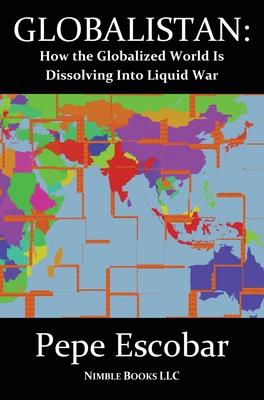Globalistan weaves three parallel and intersecting themes: globalization, energy wars and the Long War. It shows how globalization is not proceeding according to the myth of "everyone profits" instead, it is fragmenting the world into even more explosive inequality, into "stans" - some stans configured as fortresses, some stans at war with others. Energy wars, and the multiple intersections of globalization and war, only increase the polarization. Globalistan argues that the world is being dissolved into Liquid War - a natural consequence of "liquid modernity," a concept formulated by Polish sociologist Zygmunt Bauman. The book is 80% based on reportage - from China to Central Asia and Russia; before, during and after the wars in Afghanistan and Iraq; in Iran and in the Middle East; in Western Europe, Western Africa and South America. It is also an Atlas - with maps - of the world in conflict.

Globalistan weaves three parallel and intersecting themes: globalization, energy wars and the Long War. It shows how globalization is not proceeding according to the myth of "everyone profits" instead, it is fragmenting the world into even more explosive inequality, into "stans" - some stans configured as fortresses, some stans at war with others. Energy wars, and the multiple intersections of globalization and war, only increase the polarization. Globalistan argues that the world is being dissolved into Liquid War - a natural consequence of "liquid modernity," a concept formulated by Polish sociologist Zygmunt Bauman. The book is 80% based on reportage - from China to Central Asia and Russia; before, during and after the wars in Afghanistan and Iraq; in Iran and in the Middle East; in Western Europe, Western Africa and South America. It is also an Atlas - with maps - of the world in conflict.